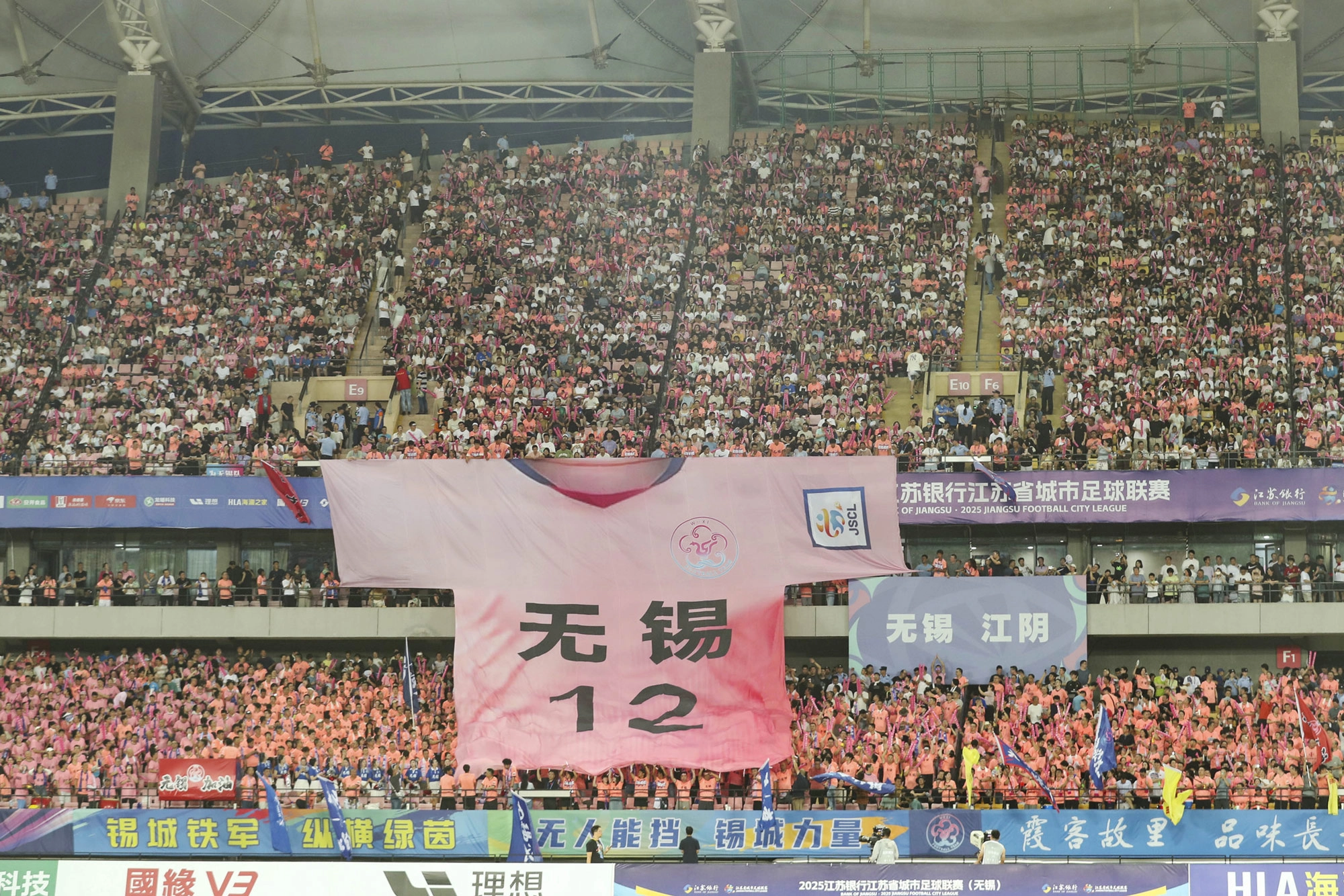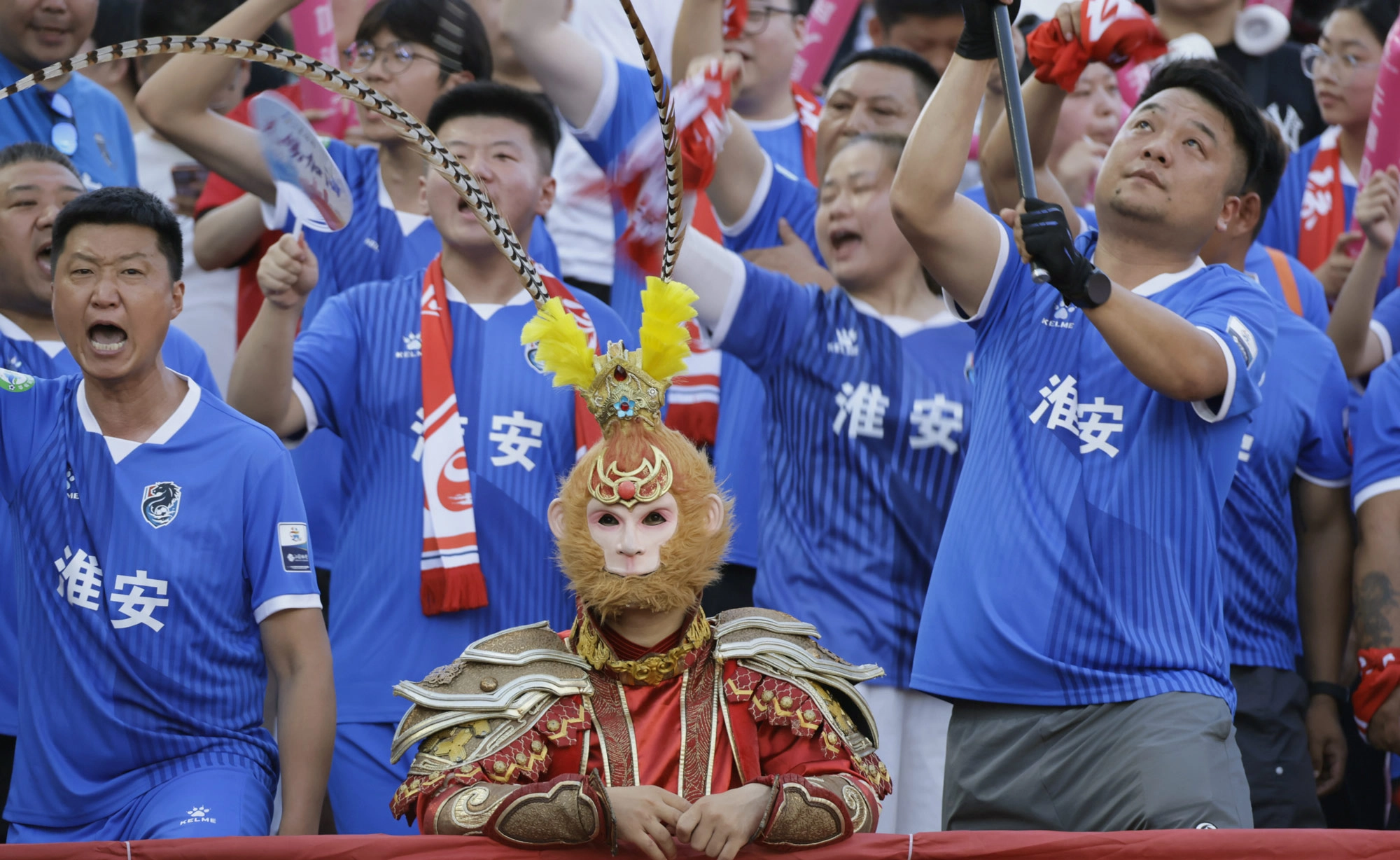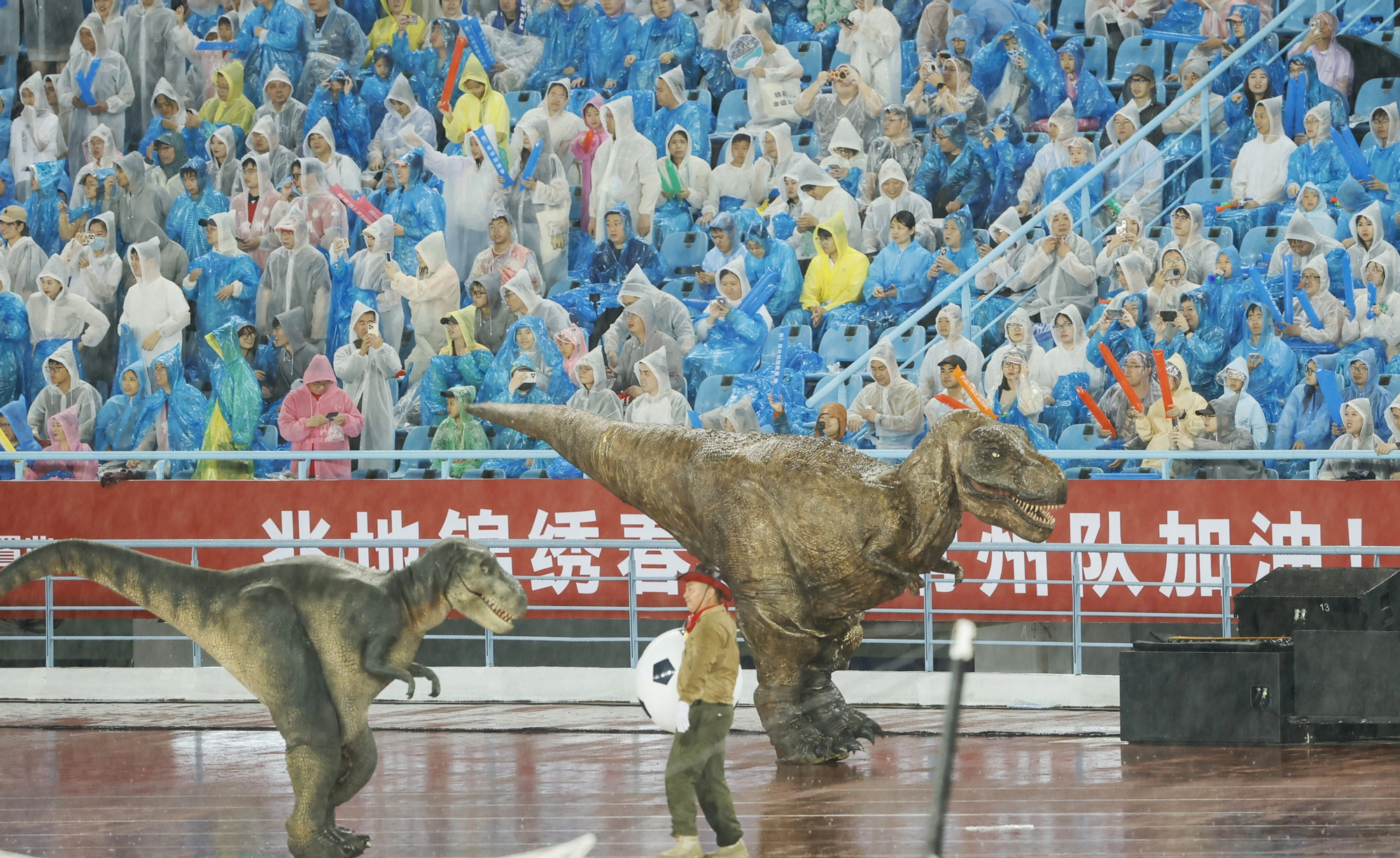When Chinas mens national football team lost to Indonesia on June 5 at the 2026 World Cup qualifiers, it spelled the end of the teams World Cup dreams. On a normal day, this would have dominated the sports pages. Instead, it barely made headlines.
Thats because the national team was up against a story that has captured Chinese football fans attention throughout the spring: a quirky, grassroots league full of amateur players that has reminded the country what sports should be all about.
Meet the Jiangsu Provincial City Football League, or Suchao , a government-run competition made up of teams from 13 cities across the eastern province. Ever since the league kicked off on May 10, my social media feed has been flooded with livestreams, score updates, crowd photos, and a stream of colorful slogans and nicknames fans have made up to tease other cities.
SUBSCRIBE TO OUR NEWSLETTER
By submitting, you agree to our Terms Of Use.*Please enter an email address.
The leagues popularity has only grown. Attendance records have been broken several times, with the current high mark being the more than 60,000 fans who watched Nanjing take on Suzhou rival cities whose inhabitants take pride in their status as the provinces capital and economic engine, respectively.
The league has become such a hot topic that Chinese sports forum Hupu gave it its own dedicated channel, alongside the NBA, La Liga, and Chinas beloved table tennis. Among viral posts about the league is a fans banner that read, Competition first, friendship 14th. Another widely shared example of the leagues playful banter is opponents making fun of struggling Changzhou for playing like the national team.

The leagues success likely far exceeded its organizers wildest dreams. At the time of launching, a local barbecue restaurant managed to snag an in-stadium ad for just 15,000 yuan ($2,092). Today, that same ad sits beside those of major national brands like e-commerce platform JD.com, which rushed in mid-season to join the buzz.
Suchao has also become a sensation despite having no star players. Most teams are made up of amateurs, and even die-hard fans will tell you the games appeal is not about the quality of play. But Suchao has tapped into something far more powerful: a swell of local pride. People are simply attending their citys stadium to cheer on students, delivery drivers, and schoolteachers who could just as easily pass them on the street the next day.
China has more than 100 cities with more than a million people, yet its top-tier football league has just 16 teams. That leaves hundreds of millions of fans with no home team to support. In Jiangsu specifically, the provinces former top teams either disbanded or were relegated, leaving fans with an emotional void that Suchao has now filled. Finally, people had a reason to chant their citys name.
And nothing fires up hometown pride like a little rivalry.
Long before the league, its 13 cities have fiercely competed in a variety of ways, including in terms of economy, education, and even infrastructure. Unlike provinces where one city dominates, Jiangsus 13 municipalities are evenly matched and all rank among Chinas top 100 cities in terms of GDP.

Jiangsu is also known for its regional diversity. Theres no single Jiangsu dialect or Jiangsu cuisine, and few locals would generalize themselves as Jiangsunese. People identify by their city, sometimes even by their district like someone saying theyre from Brooklyn rather than New York City.
The depth of local culture and history gives fans endless inspiration. The matchup between Suqian and Xuzhou, for example, was hyped as a modern reenactment of a 2,000-year-old war between two local warlords from the respective cities. Chinese naval ships named after the cities even sent in video messages cheering on their namesake teams.
This potent mixture of equal economic footing, diverse cultures, historical entanglements, and a shared love for football has made for a success that feels almost impossible to replicate.
For me, specifically, watching Suchao has felt like a return to a purer football spirit. Ever since Chinas first and only mens World Cup appearance in 2002, the countrys football narrative has been driven by one ambition: to break out of Asia and reach the world. That dream led to years of heartbreak and, eventually, disillusionment.
At the league level, big-spending, real estate-backed clubs like Guangzhou Evergrande brought in international stars and won. That team became Chinas first AFC Champions League winner in 2013, only to collapse as the countrys property bubble burst in the 2020s. Such superclubs, securing quick wins with expensive players, may have brought momentary excitement, but their boom and bust eroded football culture in the longer term.
Suchao is, in many ways, the opposite. Despite being fiercely competitive, the league is rooted in equality, community, and joy. Fans in Nantong have every reason to boast of their citys footballing tradition and current top-of-the-table status, but Changzhou fans, despite a losing streak, havent wavered in their loyalty. Winning is great, but what matters more is fans feeling a deep connection with their team and city.
Its the same reason why fans of the Premier League, March Madness, or Japans Summer Koshien tournament cling to underdog teams not because they expect them to win, but because they represent something personal. Without these fans, the success of the strong teams and the league itself means nothing.

Thankfully, Chinese football fans are increasingly backing this kind of grassroots football culture. In 2023, a rural county in the southwestern Guizhou province launched its own Village Super League, or cunchao . That, too, became a national sensation. Ironically, the more the conversation moves away from faraway stars and back to local heroes a cunchao winger or a Suchao goalkeeper you might actually know the closer we may get to realizing that old dream: China cultivating a football culture that will eventually allow it to break out of Asia and compete on the world stage.
With Suchao trending online, its likely irresistible for local officials to turn the buzz into the next tourism gold rush, in the style of Chinas recent internet-famous destinations. This is understandable, as the Chinese government has made boosting domestic demand a top economic priority, especially amid trade tensions with the United States.
But if Chinese footballs lost two decades have taught us anything, its that short-term hype often comes at the expense of long-term value. Sport doesnt pay off in days or months; it works slowly, sometimes invisibly, by building community, energizing local pride, and teaching people to fight hard and lose gracefully.
Maybe someday, football fans across these 13 cities might tell outsiders: We dont speak a Jiangsu dialect. We dont have a Jiangsu cuisine. But weve got Suchao.
And thatll be enough.
(Header image: Football fans shout and cheer at a Suchao match in Xuzhou, Jiangsu province, July 5, 2025. VCG)



